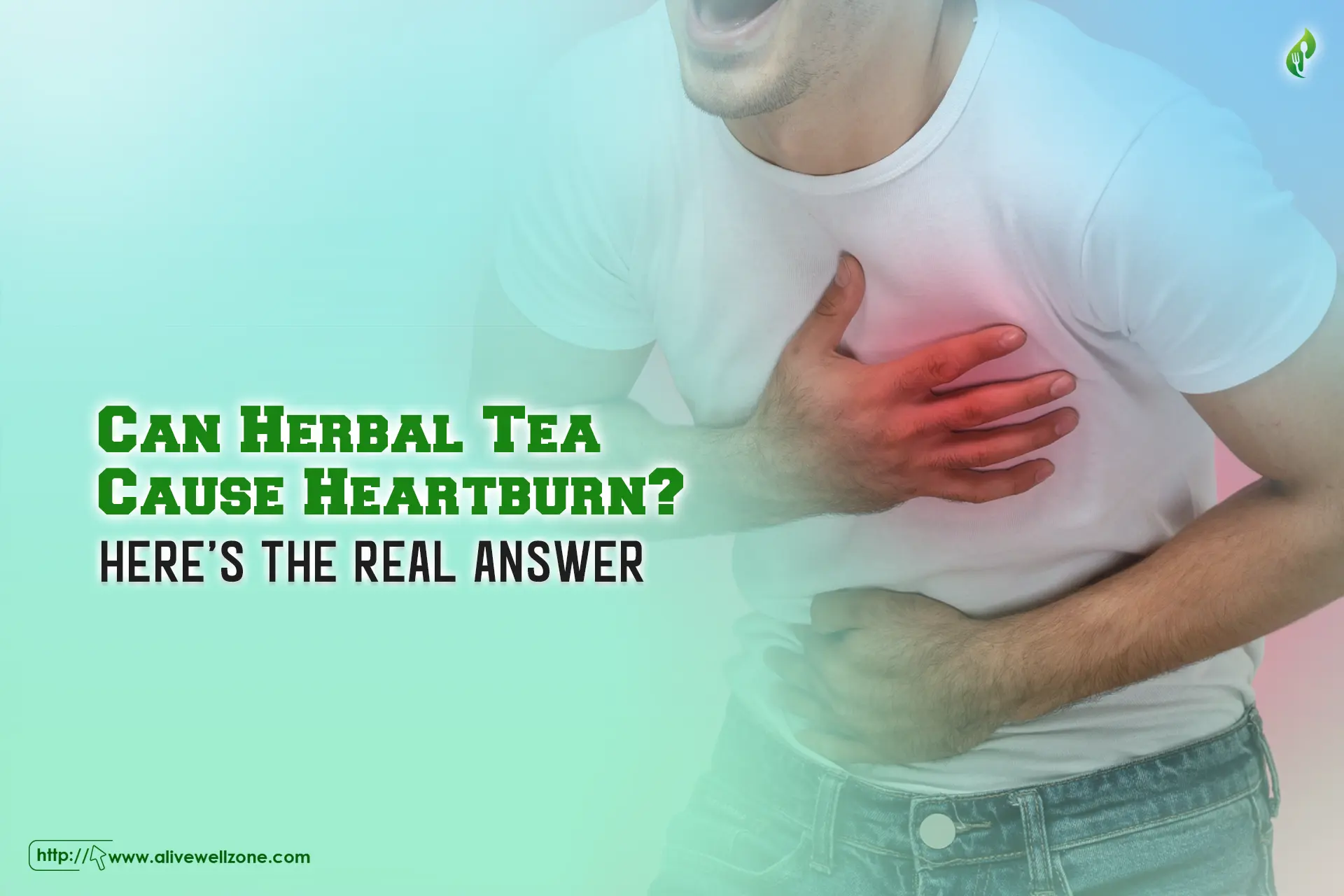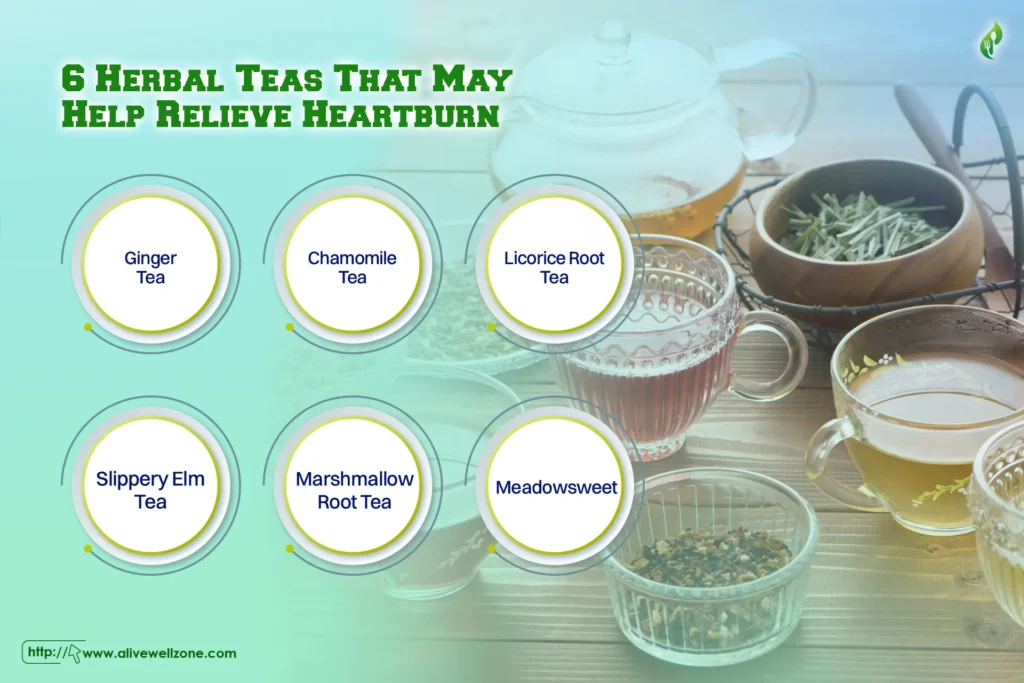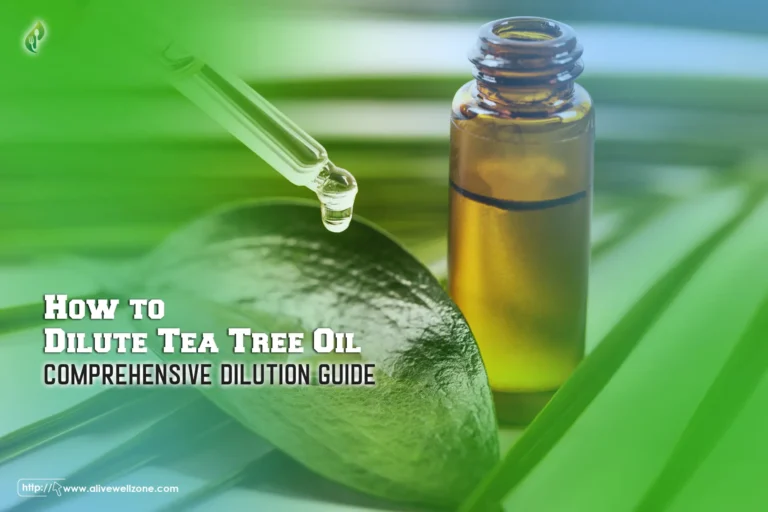
Last Updated on July 10, 2025 by Helena Akter
You finally switched to herbal tea, thinking it would soothe you, help you sleep better, maybe even calm your digestion. And for a few days, it did. But then came the all-too-familiar burn rising in your chest. And now you’re asking yourself, can herbal tea cause heartburn?
Yes, some herbal teas can cause heartburn by relaxing the lower esophageal sphincter or increasing acidity. Peppermint, hibiscus, and citrus teas may trigger it, while ginger, chamomile, and slippery elm may help soothe symptoms.
Inside, we’ll walk through what’s happening inside your body, why certain herbal teas trigger acid reflux, and which blends might help instead of hurt. Let’s figure it out together.
Key Takeaways
- Herbal tea can cause heartburn, particularly in individuals with sensitive digestive systems or acid reflux. That’s because some teas relax the lower esophageal sphincter (LES), allowing acid to rise into the throat.
- Teas like peppermint, hibiscus, and citrus-based blends are common triggers, as they either relax the LES or are naturally acidic, which can worsen reflux symptoms.
- Ginger, chamomile, slippery elm, marshmallow root, licorice root (DGL), and meadowsweet may help ease heartburn. They have anti-inflammatory, or protective properties that may protect your digestive lining.
Can Herbal Tea Cause Heartburn?
Yes, some herbal teas can cause heartburn. Let’s say you drink peppermint tea. It relaxes the lower esophageal sphincter (LES). That’s the muscle that keeps stomach acid from rising. When it loosens, acid can flow back up into your esophagus, causing that burning sensation.
Some teas are also naturally acidic. Hibiscus and citrus-based blends fall into that category. If your digestive system is already sensitive, these teas could irritate your esophagus even more and make reflux symptoms worse.
Remember, everyone’s body is different. What works for one person might not work for you. So pay close attention to how your body reacts.
Why Does Herbal Tea Cause Heartburn?
Herbal tea sounds like a gentle, healing option. However, for some people, it brings unexpected discomfort. Let’s break down why this happens —
Relaxation of the Lower Esophageal Sphincter (LES)
Let’s keep it simple, your lower esophageal sphincter (LES) acts like a door between your stomach and your throat. It opens to let food in, then shuts to keep stomach acid from coming back up.
That said, when the LES doesn’t stay tightly closed, acid escapes upward into your esophagus. That’s when you feel that burning in your chest or throat.
Even teas that are marketed as “soothing” can backfire for some people. It really depends on how your body reacts. So, listen to your gut, literally. If heartburn tends to flare up after certain teas, it’s worth switching things up.
You don’t have to give up tea entirely, but picking a gentler blend could make all the difference.
Acidity Levels in Certain Teas
If you deal with acid reflux, the kind of tea you drink can make a real difference.
Some herbal blends are surprisingly acidic, and that acidity can be the reason your tea is causing heartburn. Many fruit-based teas, especially those with citrus or berries, have a low pH, around 3 to 4. That’s pretty acidic.
If your stomach is sensitive, even a small cup can stir up a burning sensation in your chest or throat.
But it’s not just about what’s in your tea — it’s also how you make it. Brewing your tea too long or using very hot water can draw out more acid from the leaves or ingredients.
A strong steep might taste bold, but it can also be rough on your stomach.
Individual Sensitivities
It all comes down to your personal sensitivity. What works for one person might not sit well with you. Your body’s response depends on things like gut health, stress, daily habits, and even what you’ve eaten recently.
You could feel great after one cup and completely uncomfortable after another.
If you’re not sure which teas are helping or hurting, it might help to keep a log. Just jot down what you drink and how you feel after. Over time, you’ll start to see patterns. That knowledge helps you choose blends that support your comfort, not work against it.
Herbal Teas That Might Worsen Heartburn
You might reach for herbal tea expecting comfort, but not all blends are harmless if you deal with acid reflux. Some can quietly stir up heartburn instead of helping it, and they’re —
1. Peppermint Tea
Peppermint tea has a reputation for being light, cool, and soothing. It helps relax muscles in your digestive tract, which can ease cramps, gas, and bloating.
But if you have acid reflux or GERD, peppermint can be a bit of a trap.
The reason lies in how peppermint affects your lower esophageal sphincter (LES). That’s the muscle sitting between your esophagus and stomach. Its job is to stay closed and keep acid in your stomach.
When peppermint relaxes that muscle too much, it opens the door for acid to travel upward. That’s when you feel that familiar burn in your chest or throat.
Now, this doesn’t mean peppermint tea is bad across the board. Some people drink it with no issues at all, especially in small amounts. But for others, it’s a clear trigger.
2. Hibiscus Tea
If you’ve ever had hibiscus tea, you know it’s bold, tangy, fruity, and full of color. It’s packed with vitamin C and offers a refreshing punch.
But if you’re prone to acid reflux, that same punch could be a little too sharp. The tartness comes from tartaric acid, a compound naturally found in sour fruits. That gives hibiscus tea its slightly acidic pH. So, if your stomach is on the sensitive side, that acidity can cause some real discomfort.
Well, some can sip hibiscus tea just fine. On the other hand, you might feel that familiar chest burn or throat irritation, especially if you already deal with heartburn or GERD.
3. Citrus-Based Herbal Teas
Citrus in tea can feel bright and refreshing. But if you’re someone who struggles with acid reflux, those flavors might do more harm than good.
The tangy kick you get from citrus comes from acids like citric acid and tartaric acid. These natural compounds drop the tea’s pH to around 3, which makes it quite acidic. If your stomach or esophagus is sensitive, even a small amount can trigger that burning sensation you’re trying to avoid.
What bothers someone else may not bother you, and vice versa. Let your body guide your cup.
6 Herbal Teas That May Help Relieve Heartburn
If you’re looking for natural relief from heartburn, these herbal options might offer comfort without the burn.

1. Ginger Tea
If your heartburn keeps coming back, ginger tea might be something worth trying. According to a 2023 research review, ginger might help lower stomach acid production.
Plus, ginger contains compounds like gingerols and shogaols. These help calm inflammation in your digestive tract. And that’s especially in the stomach and esophagus, where acid reflux tends to do the most damage. When these areas are less irritated, that burning feeling tends to ease up.
Also, ginger works by making your stomach empty faster. Since food doesn’t stay as long, there’s less buildup of pressure, lowering the risk of acid reflux.
Even a small cup can make a difference. Ginger also helps relax your stomach muscles and ease bloating. It gently increases digestive enzymes, which help your system break down food more efficiently.
2. Chamomile Tea
If heartburn tends to show up when you’re tense or trying to sleep, chamomile tea might be a gentle way to ease the discomfort.
What makes chamomile special are natural compounds like bisabolol and chamazulene. These have anti-inflammatory and muscle-relaxing effects that can soothe the lining of your digestive tract.
It doesn’t directly target the lower esophageal sphincter (LES). However, it can still make a difference. When your body’s less stressed and your digestion is smoother, reflux symptoms may show up less often.
Chamomile also helps with relaxation and better sleep, two things that matter if acid reflux tends to hit at night. Thus, it’s a natural, low-risk way to calm heartburn, including one peaceful sip at a time.
3. Licorice Root Tea
Inside licorice root, there’s a natural compound called glycyrrhizin. It helps your body to increase mucus production in your digestive tract. That extra layer of mucus acts like a soft cushion to protect your esophagus and stomach lining from stomach acid.
Meanwhile, maybe you’ve heard that licorice can raise blood pressure. However, there’s a safer form made specifically for regular use. It’s called deglycyrrhizinated licorice, or DGL. This version removes most of the glycyrrhizin while retaining the beneficial effects.
And yes, there’s solid research behind it. In one clinical study that lasted 30 days, participants who took a licorice extract called GutGard® just 75 mg, twice a day, reported a real drop in heartburn symptoms.
Even better? There were no side effects noted during the study.
4. Slippery Elm Tea
If you’re tired of the burning that climbs up your chest after meals, you should try the slippery elm tea. Slippery elm, or Ulmus rubra, contains a natural substance called mucilage.
When you mix the bark with hot water, it turns into a smooth, slippery gel. The gel creates a soft, protective film in your throat and stomach. Basically, it acts as a barrier between your tissue and stomach acid.
Plus, that coating may help calm inflammation, ease irritation, and support healing in the esophagus. Now, you can drink slippery elm tea either during flare-ups or use it regularly to keep symptoms at bay.
One important thing to know: slippery elm’s coating effect can also slow how your body absorbs medications. If you’re taking any, it’s best to give them a two-hour head start.
5. Marshmallow Root Tea
Marshmallow root is naturally soothing and protective. It contains mucilage, a thick, gooey substance that becomes gel-like when mixed with water. When you drink marshmallow root tea, it coats your esophagus and stomach with this protective gel. Thus, your stomach tissues stay safe from harsh stomach acid.
It also gently calms irritated tissues. Thanks to its anti-inflammatory properties, it helps quiet irritation in your digestive lining. If your throat or esophagus feels raw from acid reflux, this natural calm can make a real difference.
With steady use, it may support your body’s healing process so the damaged tissues get a better chance to recover.
6. Meadowsweet
Meadowsweet is an herb in the rose family that contains salicylates and tannins. These compounds are known for their anti-inflammatory and astringent effects.
When prepared as tea, meadowsweet may help reduce gastric acidity and protect your stomach and esophageal lining. The mucous membranes benefit from its coating and calming action, which can help limit irritation from acid reflux.
You might also find it useful for other digestion-related issues, including bloating, nausea, and mild diarrhea. Some herbalists combine meadowsweet with marshmallow root or chamomile for broader support across the digestive tract.
Wrapping Up
So, can herbal tea cause heartburn? Yes, it can, but not always. We’ve seen how teas like peppermint, hibiscus, and citrus blends may trigger acid reflux in some people.
At the same time, gentler options like ginger, chamomile, or marshmallow root can bring relief. It all depends on how your body responds. As we move forward, we suggest you notice patterns, trust your gut, and stay flexible.
FAQs
Can I drink herbal tea if I have GERD?
You can drink herbal tea if you have GERD, but not every tea is safe. Some herbs reduce symptoms. Others may make them worse. Thus, you need to monitor how your body reacts. Remove any teas that cause discomfort.
How can I tell if herbal tea is causing my heartburn?
Track your symptoms with a food and drink diary to spot patterns. If heartburn follows certain herbal teas, they may be the trigger. Try removing one tea at a time to test for reactions. Some herbs can irritate digestion, especially in large amounts.
Are there any potential side effects or risks associated with using herbs for acid reflux?
Some herbs for acid reflux may cause side effects. Ginger can trigger heartburn in large doses, whereas licorice may raise blood pressure. Meanwhile, slippery elm and marshmallow can affect medication absorption. So, always check with your doctor before starting herbal treatments.







